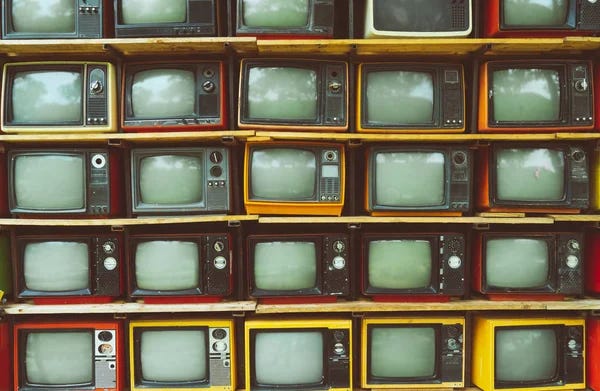An Increasingly Walled World
The unrealities we create to deny the violence around us.
I just got back home from a vacation with a dozen friends at a house in a remote location. While there, largely disconnected from the internet, a piece of news leaked into our bubble—someone in our group who is not a U.S. citizen had been doxxed by a right-wing Israeli website often crosschecked by the Trump administration, threatening our friend’s ability to reenter the United States for the foreseeable future.
The moment was jarring—not only because we all felt horrible for our friend, but because we’d, via travel, created a kind of walled world in which these things weren’t supposed to be thought about. That’s the point of vacation—to experience the world as if it’s not the world; to experience it as if its problems do not exist.
On my flight back, a friend at a rave in the woods of France told me several people around him, most from the Middle East, had begun crying at the news that the U.S. had illegally begun bombing Iran. “That’s why we’re here, doing drugs,” one of them said to my friend. To ward off the reality of the world. But eventually, the world intrudes. There’s only so much wall-building you can do.
As I landed, I thought my reentry to reality would be harsher—that I’d feel overwhelmed by the walls coming down. I thought that going back to my daily routine in the United States and all its stresses and stupidities and aggressions would fill me with a sense of dread.
But then I opened Instagram, and Twitter, and various websites meant to distract people from anything important. I didn’t need to be away from home to build a bubble, I realized. Much of our current infrastructure is engineered with this purpose—to bubblefy us, to keep us ensconced in an unreality so that the real reality outside of the bubble feels ever more distant, and even itself unreal.
It’s a strange contradiction, though not a coincidence, that as our world becomes progressively more connected, both in theoretically benign ways (air travel, the internet) and in more obviously harmful ones (imperialism, war), we become progressively more bubblefied, constantly searching for ways to remove ourselves from what’s exceedingly obvious (that the world is bad) and replace it with distraction, or a false reality all our own.


